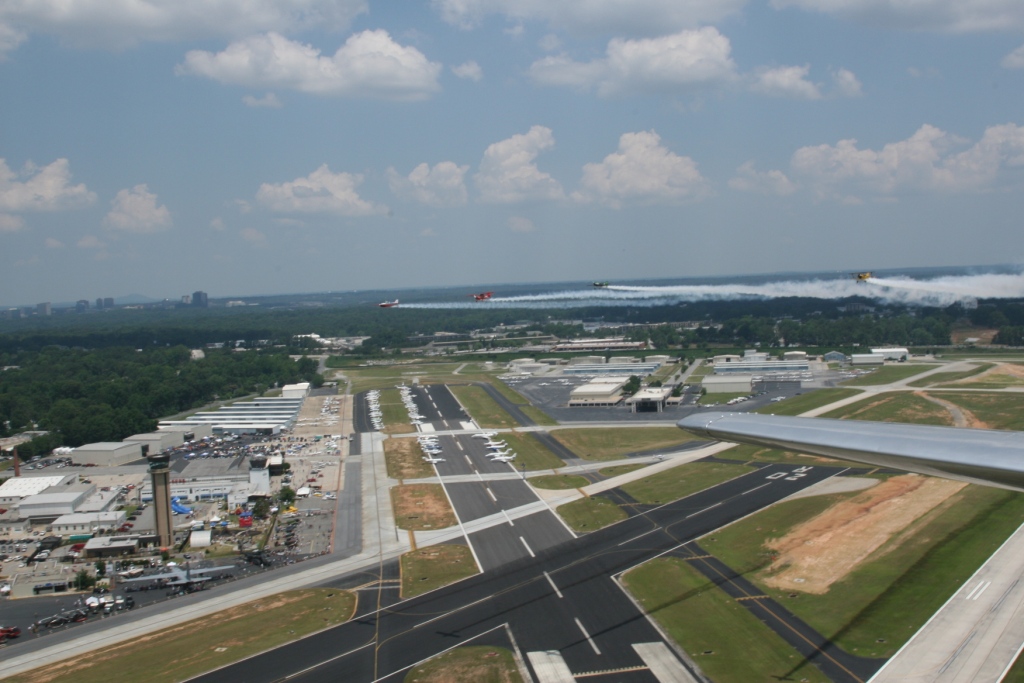A new pollution study is underway near DeKalb Peachtree Airport (PDK), and it is the first study of its kind in that the research is being designed especially for the airport. Environmental health scientist Barry Ryan from Emory University’s Rollins School of Public Health will lead the study. Ryan and his team will gather and analyze data on both noise and air pollution within a one-to-two-mile radius of PDK.An audio version of this story
Dr. Ryan told WABE, “We’re going to look and see what kind of data we collect on both noise and air pollution. We’re going to try to correlate that with take-offs and landings of aircraft and see if there’s any relation there.”
People who live near the airport have been pushing for such a study for years and think Dr. Ryan is the scientist who will finally do the kind of study they want: one that is designed specifically for PDK.
Larry Foster is with the citizens group PDK Watch, and he makes his skepticism clear about previous pollution studies done in the area around the airport. “Standard ones that are done are done under certain types of [Federal Aviation Administration] FAA regulations that tend to result in studies that are more sympathetic to what the airport is originally trying to do,” said Foster. “In other words, they tend to be a bit cooked.” 
Dr. Ryan says this study aims to separate the sources of the pollution. “We have mechanisms, by and large mathematical, that we’ll be using to separate those components out and see what the airport causes and what the surrounding community, is just a natural background of being in a big city, what they actually contribute.”

9(MDAxODM0MDY4MDEyMTY4NDA3MzI3YjkzMw004))





